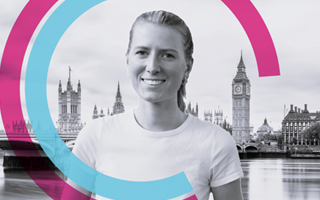As Parliament winds down, Ida gets to work dissecting a flurry of government reports covering investment, innovation, banking, volunteering and more...

We're fast approaching the midpoint of summer, which means the countdown to Parliamentary recess in August is on. While MPs are eyeing up their holidays, there’s no early sign-off for the Government, which has been under mounting pressure, not least to scrap the two-child benefit cap.
With the country’s financial plans in disarray, Chancellor Rachel Reeves had to look elsewhere to satisfy demands -something less expensive than scrapping the cap. Earlier this week, Reeves announced a £500 million ‘Better Futures Fund’ for charities and civil society groups to invest in youth services.
The goal is to match-fund the same sum from philanthropists, social enterprises and government to help up to 200,000 children over the next decade. We hope this will give youth and children’s charities a much-needed boost in their mission to tackle child poverty.
A new report on volunteering puts some real numbers behind what we already know: volunteers are essential. The research estimates the economic and social value of volunteering at £25 billion a year. It’s a positive report that recognises not only the monetary value of volunteers, but also the benefits they bring to people and communities.
Another report that caught our eye: Exploring behavioural barriers to investment in DCMS sectors. Having just dissected it for information related to civil society and charitable organisations’ investment strategies, I can reveal that there is room for improvement.
The research shows that many charities are (understandably) laser-focused on delivering immediate support to their beneficiaries, which means anything that doesn’t have a direct, visible impact, like buying office space or investing for the long-term, often gets sidelined.
There’s also a reluctance to try anything that might feel out of step with their mission, which can make diversifying income or exploring new investment routes a tough sell. The result? A slightly narrow view of what investment can actually do for an organisation in the long-run.
Closely related, a separate report on innovation revealed that some charities see investing in innovation as 'incompatible with their duties' as charitable organisations. One of the key recommendations is for the DCMS to champion impact investing - something that aligns better with charitable ethos and long-term goals.
At any rate, the takeaway is that investment in innovation and diversifying income sources is not just helpful, it’s essential for resilience across the sector.
And finally, something in which I am personally very invested (pun absolutely intended): charity banking. CFG has long been working with charities, banks, and regulators to improve banking services for the sector.
The Research with Trustees publication reveals that banking issues have overall fallen since 2024, but it also shows that there is a long way to go. Still, two in five trustees say that their charity has encountered a banking issue in the past year.
What this publication doesn’t report on is what happens after charities raise an issue with their bank. In our Charity Banking Challenges 2024 report, we found that more than half of charities who raised an issue with their bank felt it wasn’t resolved satisfactorily.
That’s why we’ve created a new guide (fresh off the press): Communicating with your bank: raising an issue or concern. This guide is designed to support charities with clear, step-by-step instructions on the complaints process including key considerations and best practices.
We hope you will never need it(!) but if you do, we hope it’ll make the process of raising an issue with your bank smoother.
Until next time!
Ida